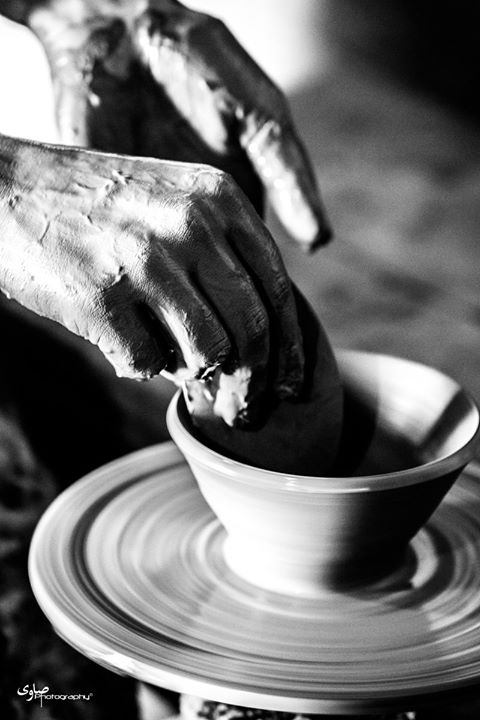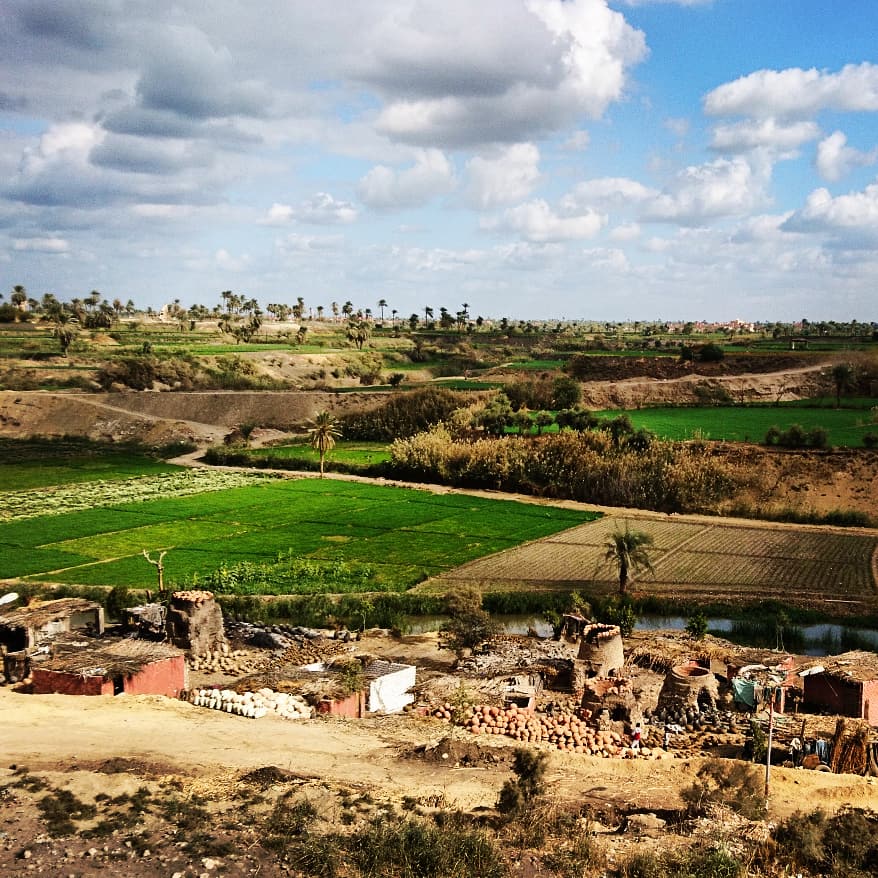
Handicrafts around Tunis Village
As in many of the rural Egyptian communities, women are the main producers of arts and crafts in the Fayoum villages. Aside from pottery, the crafts typical of the area include palm leaf baskets, beaded jewelry, woven embroidery, tent embroidery, puppets, and leather. Fayoum crafts are mostly simple, seeing as how the crafter’s main objective is to sell products for practicality and easy usability.
Some of the more famous handicraft villages besides Tunis are…
Nazla Pottery Village is located on a branch of Bahr el-Youssef Canal, which connects Fayoums’ farmers with the Nile, Nazla village lays in a natural valley around 30 km from Tunis Village. Local Potters located their workshops right at the small riverbed of one of the canals, using the river clay to produce their pottery.

Desya Village, which is famous for its handmade carpets of silk and the traditional material of goblan, an industry which has recently gone into decline. It is also famous for the Famous Touristic Coptic monastery, known as Prince Tadharos, which was built in the 18th Century.
Khaltha hosts the Khalta House of Textiles. Khalta, is a small village on Lake Qarun, neighboring the better known village of Tunis. The women of Khalta decided to enter the patchwork business inspired by the pottery school that had tremendously increased the living standards of the people of Tunis. Ever since Swiss tailor, Doris Frei, has trained the women and together they established the Brand Khalta: Home Of Textiles. Currently they are constructing a green training center in the village to educate more women in the craft.
Watermelon Experiment
